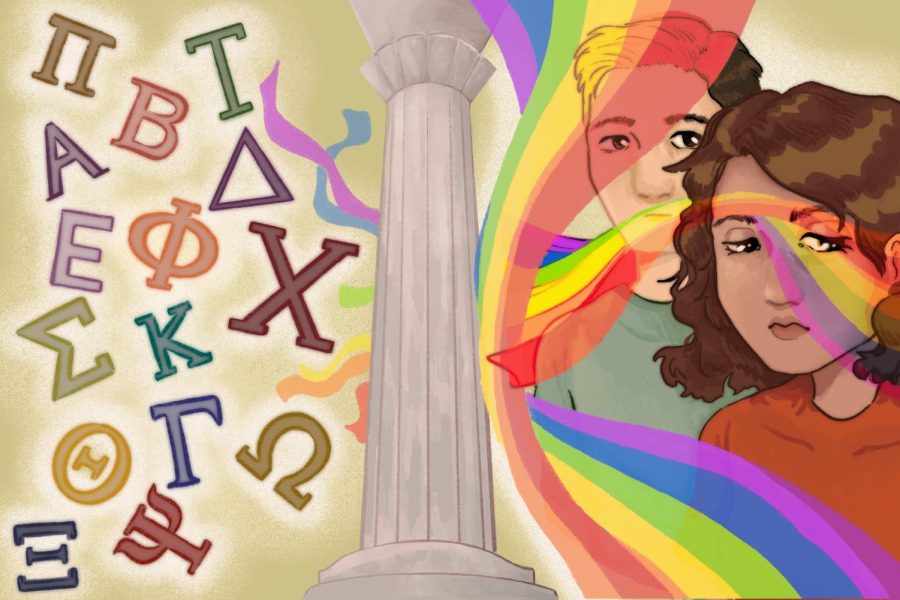LGBTQ+ representation in Greek life matters
September 27, 2022
In 2015, Gamma Rho Lambda became the first queer-focused sorority on UT’s campus. It was formed to address the heteronormative and transphobic culture found in many the Greek organizations on campus. As a queer woman myself, this was both surprising and incredible to see. I remember walking on campus my first semester as a Longhorn and seeing them set up on Speedway. Every Greek organization I had previously heard of at the University was a place I wanted to stay away from. I knew I didn’t fit the mold, and everyone I knew who had gone through the process before advised me against it.
I am incredibly thankful for the work that’s been done by UT alumni to provide a LGBTQ+ Greek space, but I can’t help but wonder what it would be like if the longstanding sororities had been forced to tackle these issues internally. Why is it that the people who have been excluded must create their own separate group, while “traditional” Greek organizations are allowed to continue the same harmful practices that lead to a feeling of otherness?
Since it’s been seven years since UT’s Gamma Rho Lambda chapter was founded, I wanted to inquire about the reality of being LGBTQ+ in Greek life in 2022. However, many people I spoke to didn’t feel comfortable coming out to their chapters because of a perceived lack of safety.
Jillian Delp, a studio art and biology senior, recently came out to her chapter, becoming the only out queer person in her sorority.
“I felt like I had to hide that part of myself when I first joined,” Delp said. “The comments that people don’t really see as harmful like ‘That’s gay’ or using even occasional slurs … are (sometimes heard) in really small settings.”
When she did come out, though, she was met with a lot of support. She still hears these comments, but her main concern is the overall lack of representation.
While there’s less explicit discrimination than several years ago and more vocal support, there are still heteronormative undertones that are tough to ignore. Take for instance, the longstanding traditions of having sweethearts in fraternities. They’re women chosen by fraternities to be honorary representatives of the organization and are often picked based on social status and appearance, since it largely has to do with connections they have to the fraternity. Such strictly gendered roles emphasize the pressure to act according to tradition.
Cristina Folsom, a journalism junior, remembers feeling hesitant to come out to her chapter. Some of the initial reactions she got weren’t positive, but she now feels comfortable and supported.
“It’s important to encourage other girls who are a part of the LGBTQ+ community to go through recruitment so that way we can make the Greek life community more diverse,” Folsom said.
She said that sororities have a history of being exclusive, but she’s proud to be a part of one that is constantly working towards being more diverse and inclusive.
It’s great that there are LGBTQ+ women who have found their place in traditional Greek life at UT. Progress takes time, and there have definitely been significant strides. However, the work isn’t done. In fact, I couldn’t find any men who felt ready to publicly talk about their experiences as LGBTQ+ members in fraternities. The challenges are different in every organization, but there’s no doubt that there’s still fear associated with coming out in Greek life.
UT Greek life, it’s time to start having the hard conversations about why some LGBTQ+ people still don’t feel accepted in your organizations or why there is such a lack of queer representation. Stop merely tolerating and start being outwardly, boldly and warmly accepting so that more LGBTQ+ people feel encouraged to join your organizations.
Lawrence is a social work senior from Austin, Texas.



